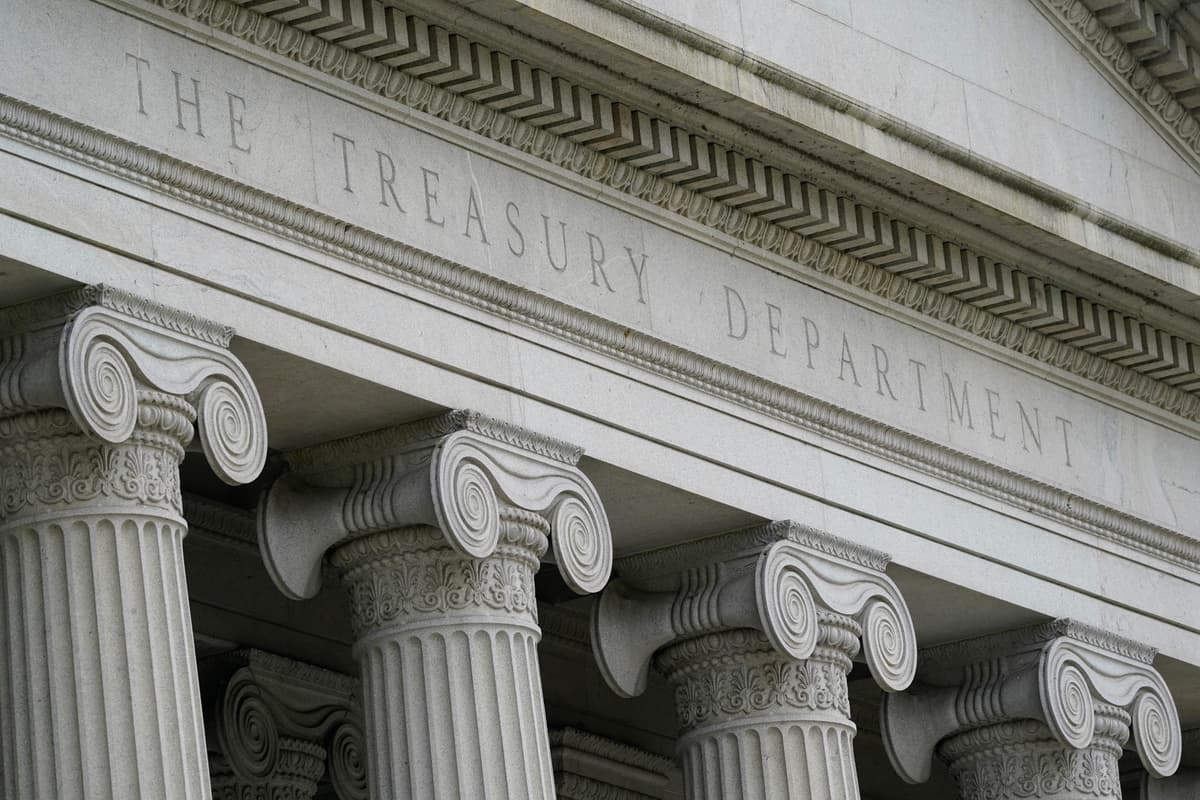The Ideal Treasury Secretary
Trump is going to need one to gain a historic legacy.

The next big announcement we’ll be looking for from President Trump will be his choice for Treasury secretary, a point underscored to us in a cable from monetary sage James Grant. He marked the qualities that would suit the next person to fill Hamilton’s shoes. “Business acumen,” “integrity,” “discretion,” and “a proper understanding of the gravity of America’s debt predicament” are among the considerations put forward by Mr. Grant.
Ça va sans dire, one might say. Yet Mr. Grant could well have just been getting warmed up before laying out what could prove to be the decisive criterion for a Treasury secretary — not only for the success of Mr. Trump’s presidency, but for the future of the American economy. “The ideal candidate,” he adds, “must be familiar enough with the history of money to decide whether the time has come for America to revert to a convertible currency.”
By that, Mr. Grant means a restoration of honest money — the Constitutional dollar envisioned by the Framers and enacted into law during the tenure of the first Treasury secretary, Hamilton himself. In short, a dollar whose value is fixed by law as a certain weight in specie — silver or gold. Convertibility is the quality of being able to exchange, or convert, paper dollars into money, as once was an ordinary occurrence under a gold standard.
This was the monetary system under which the American economy grew to global predominance, all the while holding annual inflation to an average of 0.2 percent. That’s not a typographical error, as a wary reader might suspect in an age when the Federal Reserve is trying to keep inflation going at the rate of 2 percent a year. It’s the average over the years between 1790 and 1913, as calculated by economists William J. Luther and Alexander William Salter.
When America was on a strict gold standard, as it was between 1879 and 1913, annual inflation was even lower: Just 0.1 percent on average, economist Michael Bordo has reported. Yet over the 20th century America moved away from sound money. First FDR suspended convertibility of the dollar in 1933. After World War II, convertibility was restored — at least for foreign governments. Even so, inflation was held in check and growth was buoyant.
In 1971, though, President Nixon scuttled the Bretton Woods system and the age of fiat money began. It ushered in years of stagflation only checked by President Reagan and his doughty Fed chairman, Paul Volcker. Yet inflation roared back under President Biden. Prices surged 20 percent and the dollar plunged to less than a 2,700th of an ounce of gold. As our Lawrence Kudlow reports, it’s already recovered about a 100th of an ounce since Trump’s election.
Voters’ ire over inflation hoisted Trump back into office. Now, he has to fix it. Hence the timeliness of Mr. Grant’s insight. If Trump — and his new Treasury secretary — want to get prices back down, it will require a hard look at our fiat money system. Under a gold standard, if prices rose, as they did, say, in wartime, the discipline required by convertibility would soon force prices back down. With fiat money, prices only ratchet higher, even if inflation’s pace slows.
Trump could soon find that a return to honest money is not only preferable, but essential to fulfilling his platform pledge to “Defeat Inflation.” Trump, too, vows to preserve the dollar’s role as the global reserve currency. Mr. Grant has a question on that head for Trump’s Treasury secretary: “Is it, or is it not, a poisoned chalice?” He replies: “If the answer is yes (and the answer is yes), he must have a strategy for abandoning it.”
The fiat dollar’s reserve role — the “exorbitant privilege” — has let America run budget and trade deficits for decades with no consequences. That could change. Bond markets are sounding a warning over whether America’s debt is sustainable. Signs appear of a “risk premium” on long-term bonds. So, Mr. Grant advises the next Treasury chief: If it comes down to a choice between keeping reserve status and restoring convertibility, go for honest money.

